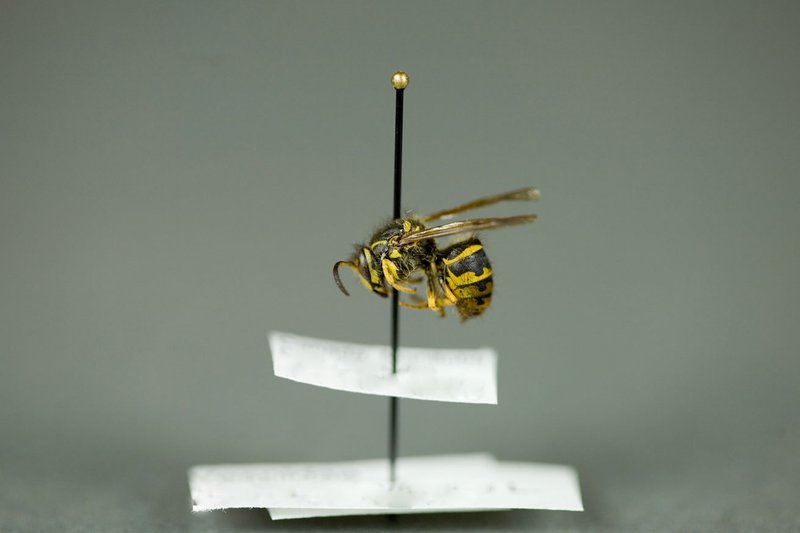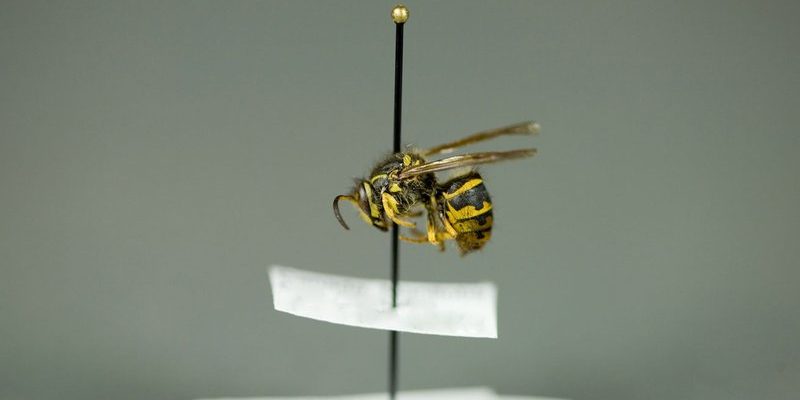
Let’s break down what yellowjackets do beyond their reputation for scavenging. They might not wear little hard hats, but their work is just as important as any other hardworking creature in the animal kingdom. From their role in pollination to other jobs that keep our environment healthy and balanced, understanding these little guys can give you a new appreciation for them—even if they do crash your cookouts!
The Role of Yellowjackets in Pollination
You might be surprised to learn that yellowjackets are actually quite the little pollinators. Like bees, they visit flowers looking for nectar. While they’re sipping that sugary goodness, they unwittingly pick up pollen. As they fly from flower to flower, they transfer this pollen, helping plants reproduce. It’s a bit like a dance between the insect and the plant—every step they take helps ensure that flowers bloom and fruits grow.
Here’s the thing: yellowjackets are especially useful in pollinating certain flowers because they’re attracted to a wider variety of blooms compared to other insects. They don’t have the same strict preferences as bees, which mainly focus on specific flowers. This flexibility means they can help a variety of plants thrive, contributing to a rich, biodiverse environment.
If you’re wondering how effective they are at this job, research shows that yellowjackets can be responsible for pollinating up to 60 different plant species. So next time you see one buzzing by, remember it might be on an important mission to help a plant grow!
Pest Control: A Natural Ally
Another critical job yellowjackets do is keep pest populations in check. They’re not just scavengers; they’re also predators. Yellowjackets primarily feed on other insects, including flies, caterpillars, and even aphids. By preying on these pests, they help to maintain balance in the ecosystem, preventing certain insect populations from exploding and causing damage to crops and gardens.
Imagine a garden overrun by aphids. These tiny pests can wreak havoc on plants, sucking the life right out of them. Enter the yellowjacket, swooping in and munching on those aphids. It’s like having a natural pest control team on the job without needing to resort to chemical sprays. This is why many gardeners appreciate the presence of yellowjackets; they can help keep their plants healthy and thriving.
It’s worth noting that while yellowjackets are beneficial, they can easily become a nuisance, especially during late summer when food is scarce. It’s a classic case of “you get the good with the bad.” It’s essential to appreciate their role but also recognize how to coexist peacefully.
What Do Yellowjackets Eat?
Yellowjackets have a diverse diet. While they primarily seek out nectar from flowers, they’re also attracted to other food sources. This is why you often see them buzzing around your barbecue or picnic spread. Their diet includes:
- Nectar: Provides the carbohydrates they need for energy.
- Insects: High in protein, they hunt and scavenge for other bugs.
- Sweet substances: They love sugars, which can come from ripe fruits and spilled sodas.
The need for protein is particularly high during the late summer months when they’re raising their young. Worker yellowjackets will actively hunt down insects to bring back to the nest. This hunt is a critical part of their life cycle—ensuring the larvae grow up strong and healthy. Just like any parent, they want the best for their kids!
If you’ve ever wondered why yellowjackets might seem more aggressive in the fall, it’s generally because they’re focused on gathering food for their colony, which can lead to some unfortunate encounters at your outdoor gatherings.
Yellowjackets and Ecosystem Health
Yellowjackets don’t just benefit individual plants or gardens; they contribute to overall ecosystem health. By aiding in pollination and pest control, they help maintain biodiversity. A healthy ecosystem means thriving plants, a balanced insect population, and a vibrant community of wildlife.
Think about it this way: if yellowjackets weren’t around to pollinate certain plants or control pests, we could see imbalances. Some plants might fail to reproduce, and pest populations could grow unchecked, leading to an environment that’s far less pleasant for both plants and animals.
Plus, when you think about the food web, yellowjackets play a part too! Many animals rely on them as a food source, including birds and other insects. So, while they may seem bothersome at times, they are integral to a much larger system that supports life.
How to Coexist with Yellowjackets
Now that we’ve covered the valuable jobs yellowjackets do, you might be wondering how to enjoy your outdoor space without constantly swatting them away. Here are some tips for coexistence:
- Avoid sweet scents: Keep sugary foods and drinks covered when eating outside.
- Seal garbage: Make sure trash bags are tightly sealed to avoid attracting them.
- Provide distractions: If you’re having a gathering, consider placing a few cups of sugary drinks away from your main dining area to lure them away.
Being aware of yellowjacket behavior can help you minimize unwanted encounters. Remember, they’re often more focused on food than causing trouble, so adjusting your approach can help avoid confrontation.
When to Seek Help for Yellowjackets
While yellowjackets play important roles, sometimes their presence can become overwhelming, especially if they build a nest too close to your home. If you notice a nest that seems to be growing larger or more active, it might be time to take action. Here’s when to consider seeking help:
- High activity: If you see large numbers of yellowjackets frequently buzzing around a specific area.
- Near entry points: If they’re nesting near doorways, windows, or other access points into your home.
- Behavior changes: If they seem more aggressive than usual, especially during late summer.
In situations where nests pose a risk, calling in a professional pest control service can be the best way to handle them safely. These experts can remove nests without causing harm to the environment or other beneficial insects.
In Conclusion
Yellowjackets are more than just pests; they are valuable contributors to our ecosystems! From their role in pollination to keeping pest populations in check, these buzzing companions have a lot to offer. By understanding their habits and helping them coexist in our spaces, we can appreciate the balance they bring to our gardens and natural areas.
So, the next time you hear that familiar buzz, remember: there’s a good chance that little yellowjacket is hard at work, playing its part in nature’s grand scheme!

